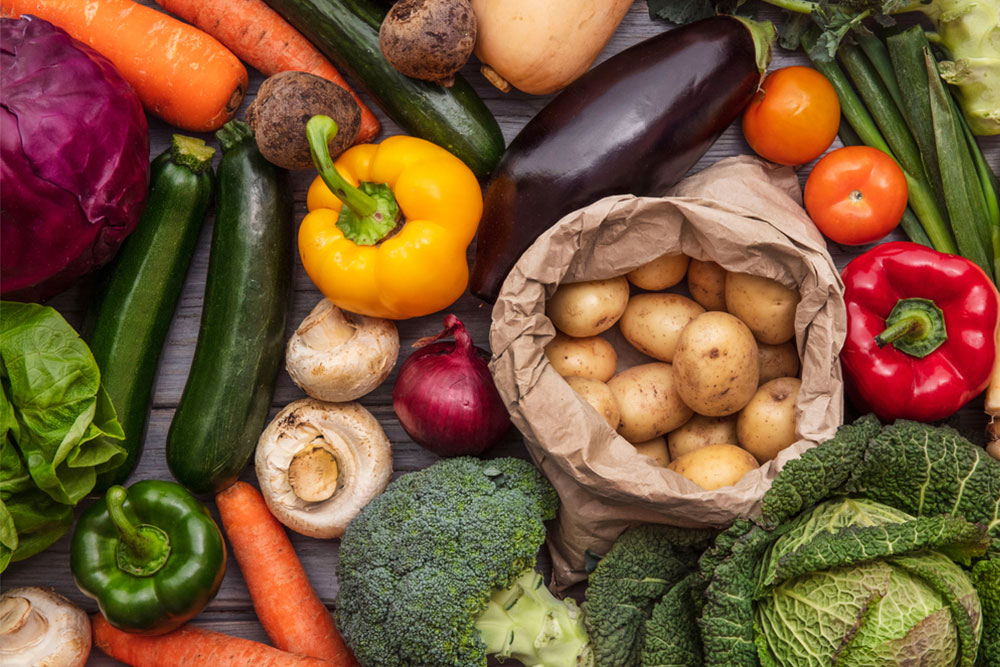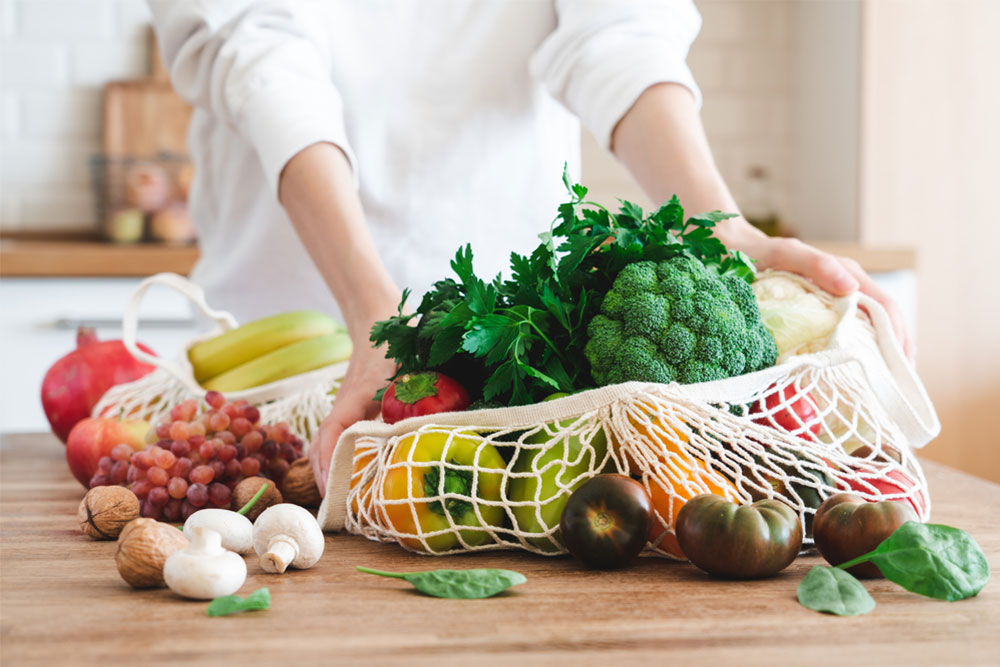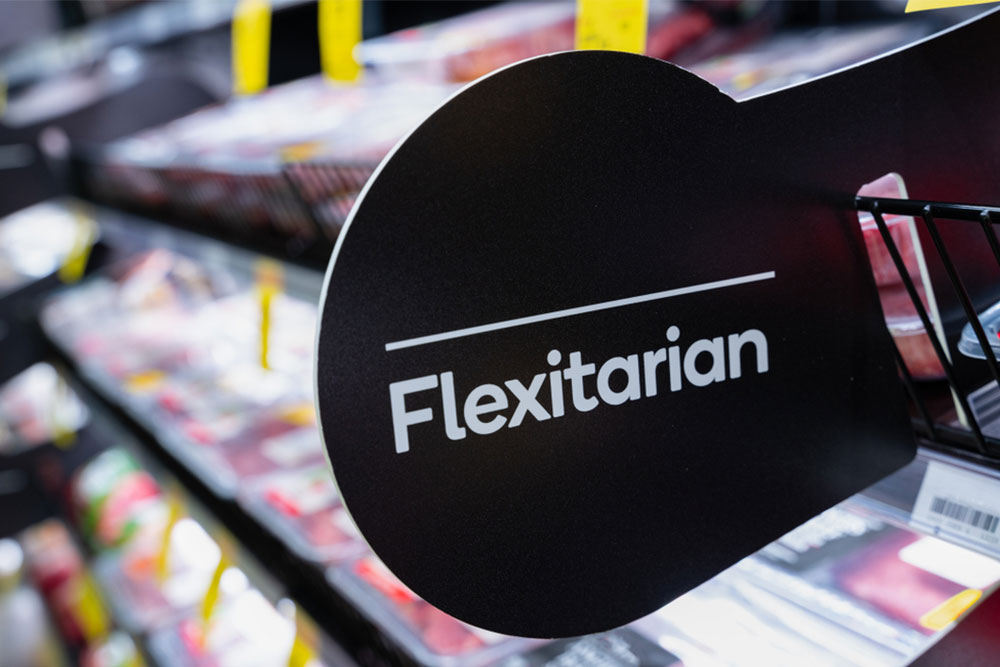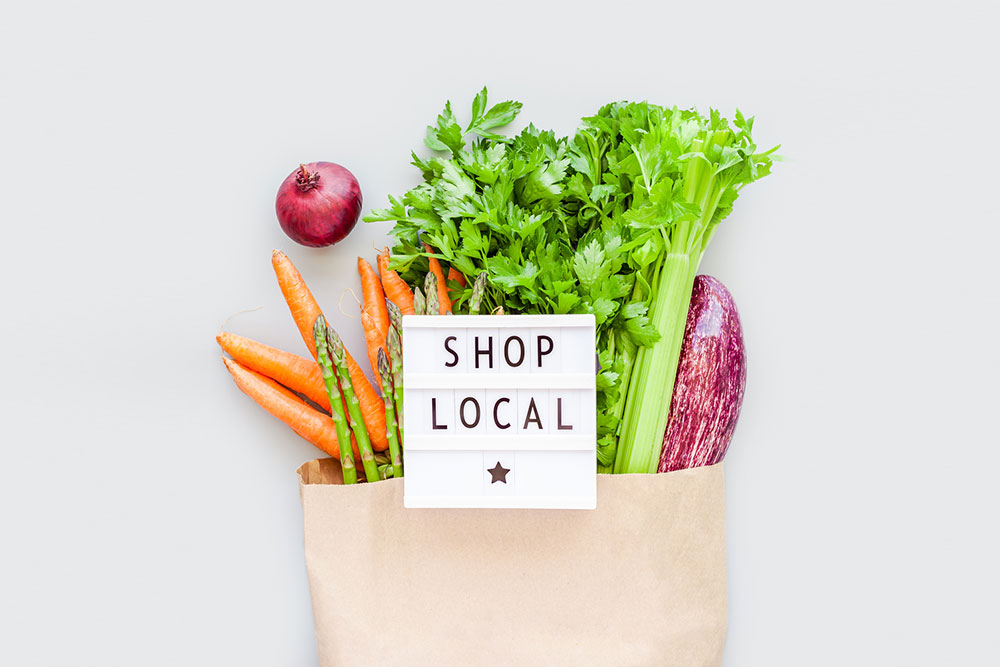Going green, eating organic foods and becoming an eco-warrior may be on your mind right now, thanks to the surge in conversations around sustainability and climate change. The need to minimise global waste and pollution and save the planet is quite urgent, so the fact that you want to do something about this is appreciable. But here’s what you really need to know about adopting a sustainable lifestyle: it’s a huge commitment and ultimately beneficial only if done in the long run. Taking it up today and quitting when the going gets tough is certainly not what you want.
So, eating organic food for a month, buying from sustainable fashion brands once or twice, or trying veganism for a few weeks won’t help you or the planet—which is why it’s best to understand what you need to do, start small and gradually adopt a truly sustainable lifestyle. One of the best ways to start is with your diet. After all, what you put on your plate not only affects your health and that of your family, but also the health of planet Earth. This is precisely the reason why many are choosing to adopt a sustainable diet, which is not only guaranteed to improve your health status—certainly not a thing to be scoffed at during the COVID-19 pandemic—but may also help save the planet.

What’s good for nature is great for you
The 2019 Summary Report by the EAT-Lancet Commission on Healthy Diets from Sustainable Food Systems estimates that by 2050, the Earth has to be able to feed a population close to 10 billion, which is an immense challenge. The report indicates that even if humanity produces enough calories of food to meet this growing demand, an estimated number of 820 million people will still lack sufficient, healthy food, and may end up consuming low-quality diets. “Unhealthy diets now pose a greater risk to morbidity and mortality than unsafe sex, alcohol, drug, and tobacco use combined,” the report states, while adding that current unsustainable agricultural methods are only likely to add to the gravity of the situation. “Global food production threatens climate stability and ecosystem resilience, and constitutes the single largest driver of environmental degradation and transgression of planetary boundaries. Taken together the outcome is dire. A radical transformation of the global food system is urgently needed.”
The solution, most public health and environmental experts believe, is the widespread adoption of sustainable diets. Now, if you’re wondering what a sustainable diet means, a study published in the journal Frontiers in Psychology in 2020, titled ‘The Solution to Sustainable Eating Is Not a One-Way Street’, provides a succinct definition: A sustainable diet is a diet comprised of foods brought to the market with production processes that have little environmental impact, is protective and respectful of biodiversity and of ecosystems, and is nutritionally adequate, safe, healthy, culturally acceptable, and economically affordable. Most studies agree that a plant-based diet is the perfect example of a sustainable diet.

You may immediately assume that this refers to only vegetarian and vegan diets—which are certainly celebrated as the most environment-friendly diets—but scientific literature also includes something known as a flexitarian diet within the wider realm of sustainable diet. This means shifting to a diet which is largely vegetarian, but may include sustainably produced animal-based food based on your nutritional needs of quality protein. So, if you’re a non-vegetarian who wants to adopt a sustainable diet, but are worried that an extreme shift in diet may affect your health or may not be sustained by you and your family in the long run, know that all is not lost. You can choose to adopt a flexitarian diet, replace unethical and unsustainable animal-based foods with plant proteins, and include a few sustainably sourced animal products in your diet. A closer look at the Mediterranean diet, which is largely plant-based and yet includes fish for nutritional value, may help you start out this journey.
The benefits of following a sustainable diet
Now that you know just why adopting a sustainable diet is good for the planet and the healthy survival of humanity, here’s some extra push that will really help you commit to this lifestyle transformation. Many studies in recent years have suggested that the biggest threats to human health can be dealt with if you were to adopt a plant-based diet—doesn’t matter if it’s vegetarian, vegan or flexitarian.

A study titled ‘Effects of Plant-Based Diets on Weight Status’, published in the journal Diabetes, Metabolic Syndrome and Obesity in 2020, suggests that excluding meat from your diet and adopting a sustainable plant-based diet can help you prevent overweight and obesity. Overweight and obesity are not just problems that affect the way you look but are also the leading causes of major health issues like heart disease, high blood pressure, diabetes, and even certain types of cancer. Another study, published in the journal Translational Psychiatry in 2019 (titled ‘The Effects of Plant-Based Diets on The Body and The Brain’) explains that eating a plant-based sustainable diet can boost your cognitive, mental and neurological health. In fact, adopting such a diet may help you prevent issues like cognitive decline, age-related memory loss, and even mental health issues.
Given the associations between comorbidities and increased vulnerability to diseases like COVID-19—a fact which has been established throughout 2020 due to the pandemic—preventing all types of major diseases is definitely to your benefit. If adopting a plant-based sustainable diet can help you live a longer, healthier life while making sure that your planet thrives too, why not commit to making a change right now?
Here are a few things you can do to get started.
1. Rethink your dietary choices: Take a closer look at what you eat every day, and find out ways to increase your intake of fruits and veggies. Minimise or cut off the intake of meat and replace them with plant-based sources like millets, whole grains, soy products and dairy products. You can also talk to a nutritionist about protein and micronutrient supplementation if you’re worried about your health.
2. Practice mindful eating: Do you really need that pack of chips to nourish yourself or are you just binge-eating? Will taking more food on your plate than you can eat lead to food waste? Do you really need to throw away plastic plates or can you recycle it? These are some questions you should be asking yourself to be able to eat mindfully.

3. Buy local: Supporting local food producers, especially those engaged in sustainable, organic farming, can help strengthen food sustainability as a whole. Sure you might want that pack of quinoa, but don’t forget to explore local grains like bajra, jowar and ragi, which are equally nutritious. Thinking globally but eating locally can really help preserve your ecosystem.
4. Eat seasonally: Not all food crops are available round the year, unless they are produced using unsustainable farming methods. You need to be aware of this seasonal approach to food to be able to avoid genetically modified or pesticide-ridden food that has been grown unnaturally. Eating seasonally produced foods available around you can help sustainability along.